Ashish Mahendra
A Graph-Based Approach for Conversational AI-Driven Personal Memory Capture and Retrieval in a Real-world Application
Dec 06, 2024Abstract:TOBU is a novel mobile application that captures and retrieves `personal memories' (pictures/videos together with stories and context around those moments) in a user-engaging AI-guided conversational approach. Our initial prototype showed that existing retrieval techniques such as retrieval-augmented generation (RAG) systems fall short due to their limitations in understanding memory relationships, causing low recall, hallucination, and unsatisfactory user experience. We design TOBUGraph, a novel graph-based retrieval approach. During capturing, TOBUGraph leverages large language models (LLMs) to automatically create a dynamic knowledge graph of memories, establishing context and relationships of those memories. During retrieval, TOBUGraph combines LLMs with the memory graph to achieve comprehensive recall through graph traversal. Our evaluation using real user data demonstrates that TOBUGraph outperforms multiple RAG implementations in both precision and recall, significantly improving user experience through improved retrieval accuracy and reduced hallucination.
A Trade-off Analysis of Replacing Proprietary LLMs with Open Source SLMs in Production
Jan 15, 2024
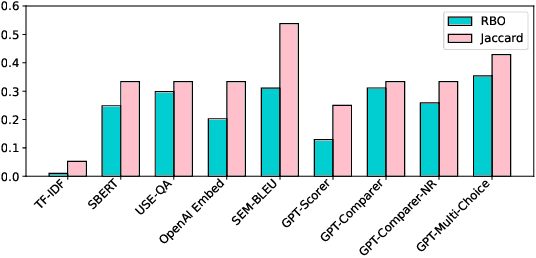
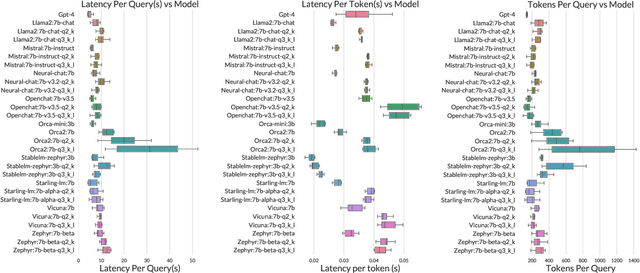
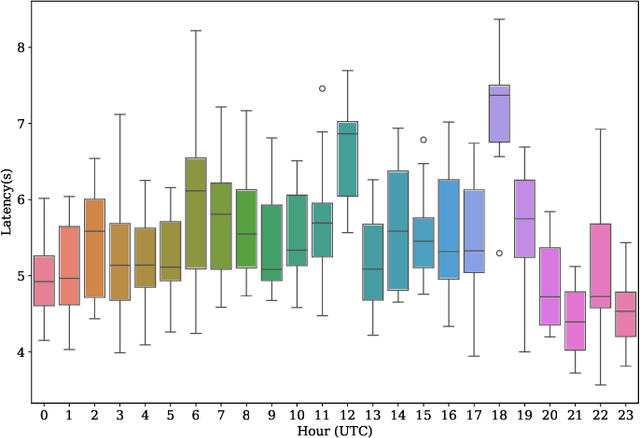
Abstract:Many companies rely on APIs of managed AI models such as OpenAI's GPT-4 to create AI-enabled experiences in their products. Along with the benefits of ease of use and shortened time to production, this reliance on proprietary APIs has downsides in terms of model control, performance reliability, up-time predictability, and cost. At the same time, there has been a flurry of open source small language models (SLMs) that have been made available for commercial use. However, their readiness to replace existing capabilities remains unclear, and a systematic approach to test these models is not readily available. In this paper, we present a systematic evaluation methodology for, and characterization of, modern open source SLMs and their trade-offs when replacing a proprietary LLM APIs for a real-world product feature. We have designed SLaM, an automated analysis tool that enables the quantitative and qualitative testing of product features utilizing arbitrary SLMs. Using SLaM, we examine both the quality and the performance characteristics of modern SLMs relative to an existing customer-facing OpenAI-based implementation. We find that across 9 SLMs and 29 variants, we observe competitive quality-of-results for our use case, significant performance consistency improvement, and a cost reduction of 5x-29x when compared to OpenAI GPT-4.
The Jaseci Programming Paradigm and Runtime Stack: Building Scale-out Production Applications Easy and Fast
May 17, 2023



Abstract:Today's production scale-out applications include many sub-application components, such as storage backends, logging infrastructure and AI models. These components have drastically different characteristics, are required to work in collaboration, and interface with each other as microservices. This leads to increasingly high complexity in developing, optimizing, configuring, and deploying scale-out applications, raising the barrier to entry for most individuals and small teams. We developed a novel co-designed runtime system, Jaseci, and programming language, Jac, which aims to reduce this complexity. The key design principle throughout Jaseci's design is to raise the level of abstraction by moving as much of the scale-out data management, microservice componentization, and live update complexity into the runtime stack to be automated and optimized automatically. We use real-world AI applications to demonstrate Jaseci's benefit for application performance and developer productivity.
Towards Personalized Intelligence at Scale
Mar 13, 2022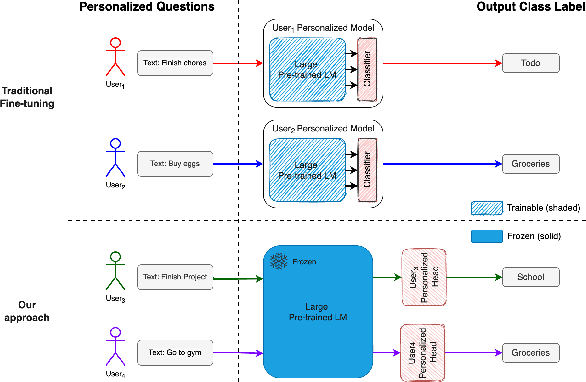

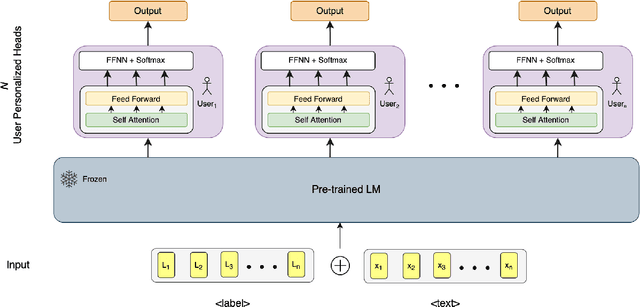
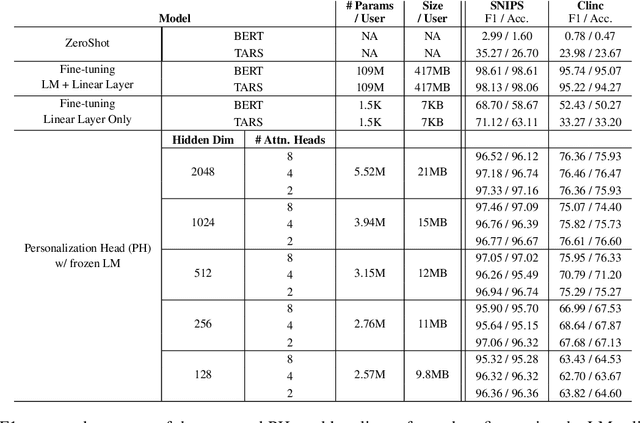
Abstract:Personalized Intelligence (PI) is the problem of providing customized AI experiences tailored to each individual user. In many applications, PI is preferred or even required. Existing personalization approaches involve fine-tuning pre-trained models to create new customized models. However, these approaches require a significant amount of computation to train, scaling with model size and the number of users, inhibiting PI to be realized widely. In this work, we introduce a novel model architecture and training/inference framework to enable Personalized Intelligence at scale. We achieve this by attaching a Personalization Head (PH) to pre-trained language models (LM). During training, the base LMs are frozen and only the parameters in PH are updated and are unique per user. This results in significantly smaller overall model sizes and training cost than traditional fine-tuning approaches when scaled across many users. We evaluate PHs on academia and industry-focused datasets and show that the PHs outperform zeroshot baseline in F1 score and are significantly more scalable than traditional fine-tuning approaches. We identify key factors required for effective PH design and training.
 Add to Chrome
Add to Chrome Add to Firefox
Add to Firefox Add to Edge
Add to Edge